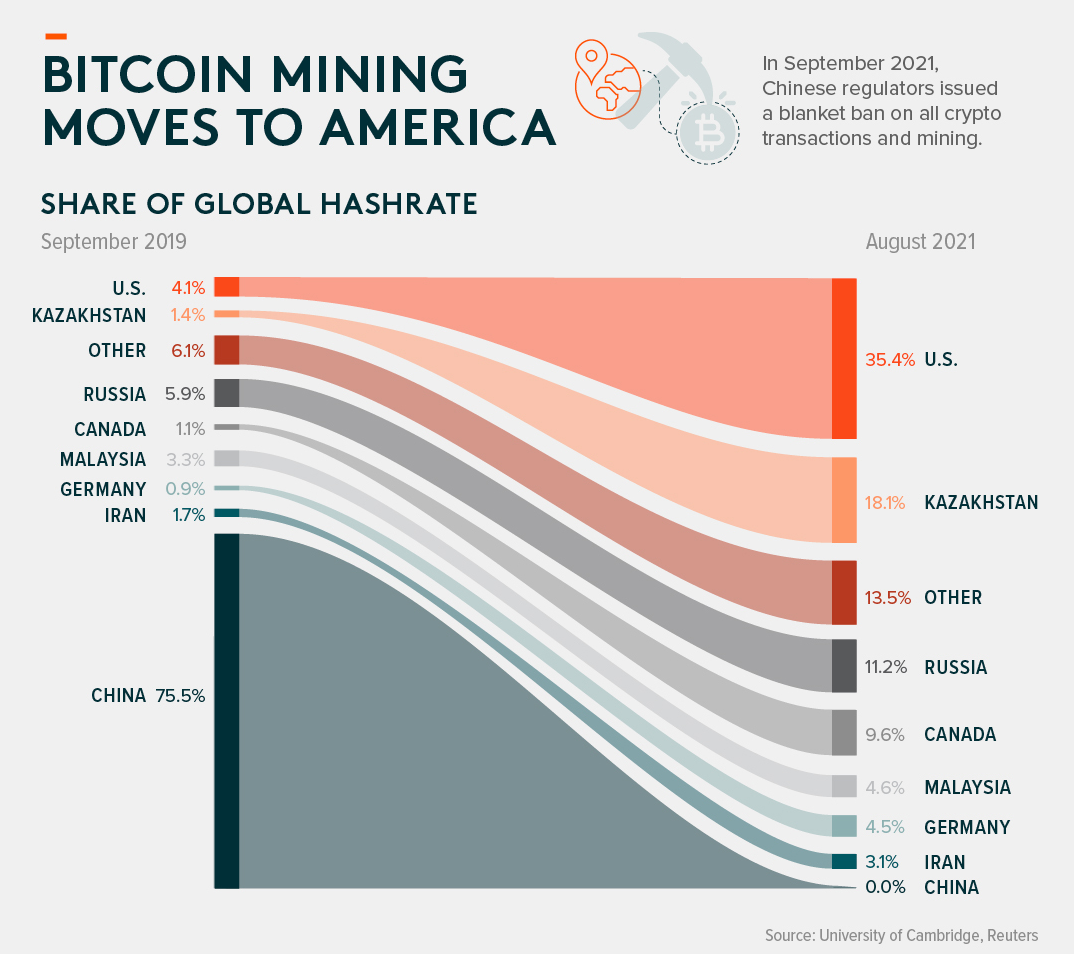In June 2021, China banned Proof-of-Work (PoW) mining, further dividing the East and the West’s stance on Bitcoin and the monetization of energy.
Nearly one year later and New York State is planning a similar prohibition on PoW mining, albeit more limited in scope, under Assembly Bill A7389C. The newly proposed bill would place a “moratorium” on new applications for mining operations using “carbon-based fuel,” according to CoinDesk.
Using China as an example, insights can be gleaned into what would happen if the New York State Senate goes forward with the ban.
Decentralization
As of early 2021, China held the majority of the Bitcoin network’s hashrate, estimated at about 53% according to the Cambridge Center for Alternative Finance.
Miners dispersed around the globe afterward. Decentralization was necessarily an outcome of the ban, leading to a general improvement of the network and showcasing Bitcoin’s anti-fragility against outside attacks.

As it's written, the New York moratorium will likely have a few outcomes. For New York, the bill would further entrench the Empire State against Bitcoin and its fledgling economy. Curious readers should look back at the infamous BitLicense and its consequences for Bitcoin in the state as an example of future outcomes.
For the mining industry, it's likely to have no large-scale consequences. Incumbent miners will likely stay in place. Foundry USA, the largest mining pool, found that about 19% of its miners were based in the state, per an October 2021 survey. New miners will flock to other areas of the country that are more welcoming, such as Nebraska, North Dakota, Kentucky, Georgia or Texas.
Miners will continue hashing elsewhere, and the free market will decide where the machines end up. If the goal is to stop miners from consuming carbon-based energy products, those will almost indefinitely be consumed somewhere else. New York will only be hurting itself and its citizens, much like China.
Photo by Tuan Nguyen on Unsplash


